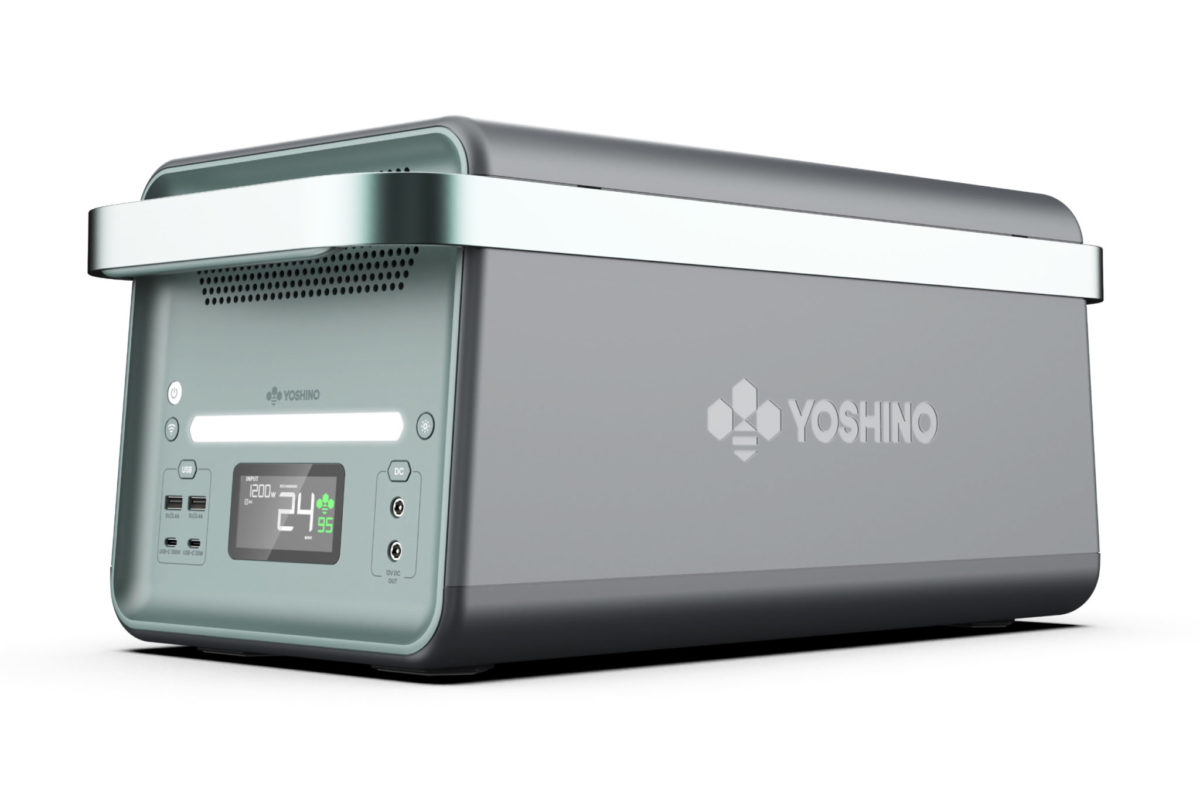From pv magazine Global
US battery manufacturer Yoshino Technology has developed solid-state lithium-ion batteries with outputs ranging from 330 W to 4,000 W. They are designed for home backup, off-grid applications, and powering small industrial machinery.
The system can be used in combination with solar panels. The 4,000 W power station has a peak power of 6000 W and 2,611 Wh of capacity. It can be fully recharged by a 600 W solar panel in 5.5 hours, according to the company. Other charging options include AC, DC, and USB-C inputs.
“These portable power stations are built around a state-of-the-art solid electrolyte in place of the bulky and flammable liquid electrolyte found in traditional lithium-ion batteries, which improves performance and represents a giant leap forward for battery technology,” Yoshino said in a statement. “Higher energy density means the same amount of power fits into a smaller, lighter package – up to half the weight per watt compared to traditional lithium-ion batteries.”
The smallest battery measures 25.4 cm x 15.5 cm x 24.1 cm and weighs in at 4.58 kg. The largest one measures 54.3 cm x 25.9 cm x 23.8 cm and weighs 24.99 kg. They can reportedly run for 2,500 cycles to 80% capacity.
The 2,000 W and 4,000 W models feature uninterruptible power supply (UPS) when plugged into wall sockets. Yoshino is selling the products starting at $349 retail. They feature a 36-month warranty.
The solution includes a mobile app to monitor charge level, battery health, and connected devices. The entire product range will be available from May.
This content is protected by copyright and may not be reused. If you want to cooperate with us and would like to reuse some of our content, please contact: editors@pv-magazine.com.








By submitting this form you agree to pv magazine using your data for the purposes of publishing your comment.
Your personal data will only be disclosed or otherwise transmitted to third parties for the purposes of spam filtering or if this is necessary for technical maintenance of the website. Any other transfer to third parties will not take place unless this is justified on the basis of applicable data protection regulations or if pv magazine is legally obliged to do so.
You may revoke this consent at any time with effect for the future, in which case your personal data will be deleted immediately. Otherwise, your data will be deleted if pv magazine has processed your request or the purpose of data storage is fulfilled.
Further information on data privacy can be found in our Data Protection Policy.